Question on the rail unionspublished at 14:00 GMT 9 November 2016
Scottish Labour MSP Richard Leonard asks when the government last met the rail unions.
MSPs take evidence from industry professionals on local government funding
Rural economy and connectivity ministers take the hot seat for portfolio questions before handing over to the environment, climate change and land reform ministers
The Scottish government delivers a ministerial statement on the closure of military bases in Scotland
The government leads a debate on eradicating hate crime and prejudice
This evening member's debate is led by SNP MSP Ruth Magure and is entitled 'Celebrating International Credit Union Day 2016'
Colin Bell and Craig Hutchison
Scottish Labour MSP Richard Leonard asks when the government last met the rail unions.
 Image source, Thinkstock
Image source, ThinkstockRural economy and connectivity ministers are first in the hot seats for portfolio questions.
We'll be back at 14:00 to bring you full coverage of this afternoon's chamber proceedings.

First up we have portfolio questions with rural economy and connectivity ministers taking the hot seats followed by environment, climate change and land reform ministers.
This will be followed by a government led debate on working together to prevent and eradicate hate crime and prejudice.
This evening's member's debate is led by SNP MSP Ruth Maguire and is entitled 'Celebrating International Credit Union Day 2016'.
That concludes this evidence session.
Committee Convener Bob Doris moves the committee into private session.
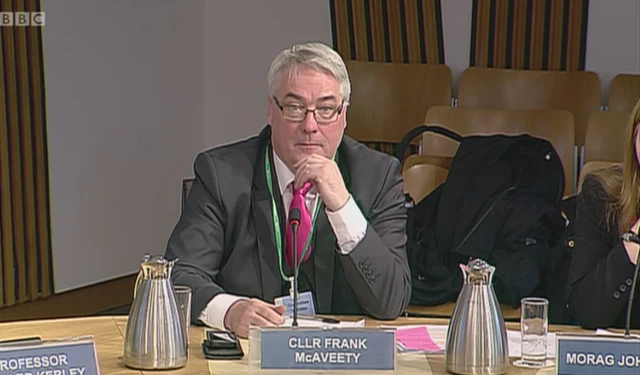
SNP MSP Kenneth Gibson says he is surprised that South Lanarkshire Council have made the decision to freeze the council tax without any indication of the budget settlement.
"It is it is not helpful to the process," he says.
Councillor Frank McAveety says the leader of South Lanarkshire Council would probably says that SLC is meeting its manifesto promises which is something government might want to consider.
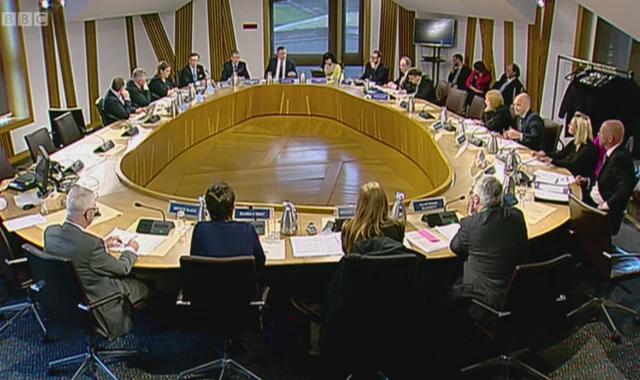
Scottish Labour MSP Graham Simpson says South Lanarkshire Council are freezing council tax and not using their power to increase it.
Mr Simpson asks if there is any indication what other councils will do.
Councillor Michael Cook says the safe answer is that others will wait for an indication of the budget settlement to decide.
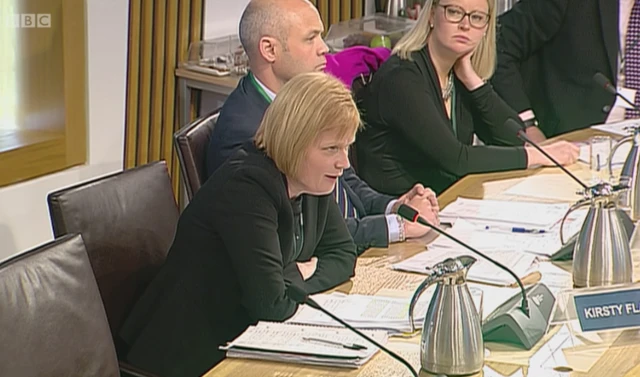
Kirsty Flanagan, head of strategic finance with Argyll and Bute Council, says she would not advocate the use of reserves to support a lack of funding.
Ms Flanagan says it is becoming more difficult to decide what to use reserves for, because Scottish government funding is getting lower.
It is used for risks, she says.
Allow X content?
This article contains content provided by X. We ask for your permission before anything is loaded, as they may be using cookies and other technologies. You may want to read X’s cookie policy, external and privacy policy, external before accepting. To view this content choose ‘accept and continue’.
Allow X content?
This article contains content provided by X. We ask for your permission before anything is loaded, as they may be using cookies and other technologies. You may want to read X’s cookie policy, external and privacy policy, external before accepting. To view this content choose ‘accept and continue’.
Allow X content?
This article contains content provided by X. We ask for your permission before anything is loaded, as they may be using cookies and other technologies. You may want to read X’s cookie policy, external and privacy policy, external before accepting. To view this content choose ‘accept and continue’.
Allow X content?
This article contains content provided by X. We ask for your permission before anything is loaded, as they may be using cookies and other technologies. You may want to read X’s cookie policy, external and privacy policy, external before accepting. To view this content choose ‘accept and continue’.
Allow X content?
This article contains content provided by X. We ask for your permission before anything is loaded, as they may be using cookies and other technologies. You may want to read X’s cookie policy, external and privacy policy, external before accepting. To view this content choose ‘accept and continue’.
Allow X content?
This article contains content provided by X. We ask for your permission before anything is loaded, as they may be using cookies and other technologies. You may want to read X’s cookie policy, external and privacy policy, external before accepting. To view this content choose ‘accept and continue’.
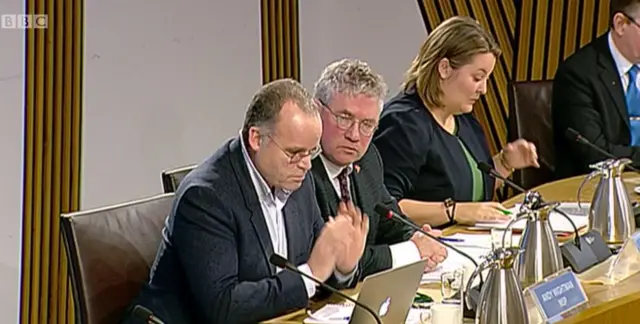 Image source, bbc
Image source, bbcGreen MSP Andy Wightman
Green MSP Andy Wightman says a number of witnesses have called for more flexibility in funding.
Mr Wightman asks if there is an argument for a fiscal framework, as Scotland has with the UK, between the Scottish government and local authorities.
Glasgow City Council leader Franck McAveety says he would like to see a much clearer picture around indicative figures.
Councillor Michael Cook from COSLA says some kind of fiscal framework would help and assist with parity of esteem.
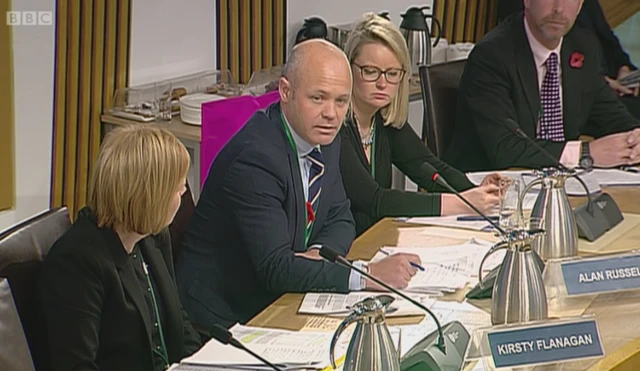
Alan Russell, director of finance and resources with Renfrewshire Council, says local authorities have been on a journey of delivering significant efficiency savings since 2011/2012.
Mr Russell says this is becoming more difficult to do whilst protecting front line services.
He says local authorities have been doing well at delivering these efficiency savings.
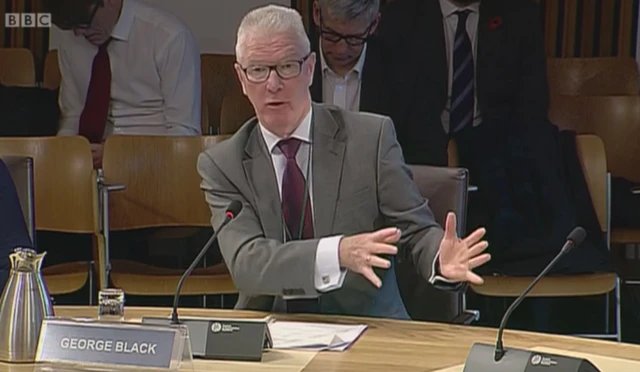
University of Strathclyde Professor George Black says if local authorities had a three-year budget plan, they could implement their transformation plans.
Mr Black says it is not about changing the figures but changing the process.
He says he can't see why the Scottish government cannot give indicative figures.
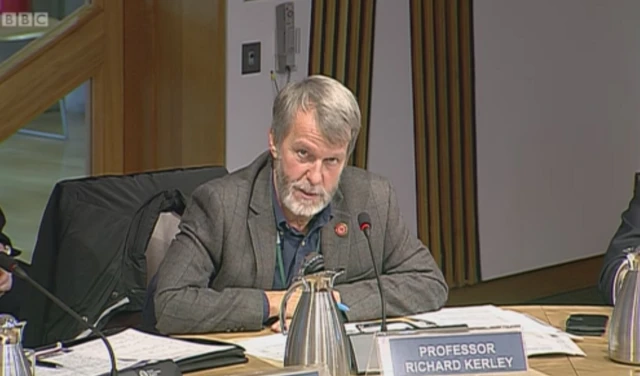
Professor Richard Kerley from Queen Margaret University says there will be a continual reduction in local governments' budgest.
Prof Kerley says local authorities should be able to plan for budgets going down year on year, as that's what is coming.
He says it is impossible to bridge the gap between pre-school hours and primary school hours in one to two years.
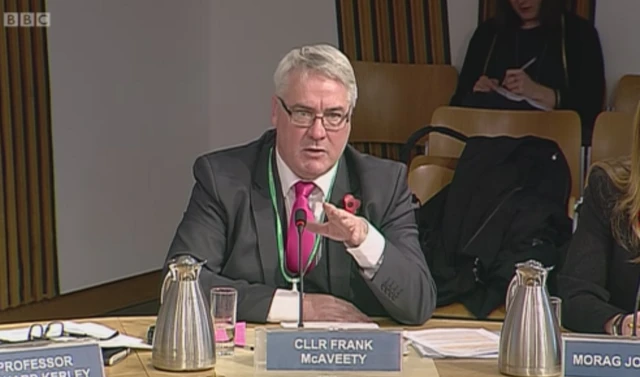
Councillor Frank McAveety, the leader of Glasgow City Council, says there will be services in the next couple of years that councils cannot provide to an appropriate level and they will have to be cut.
Councillor McAveety says it is incorrect to say the cuts will not affect services.
He says Glasgow City Council are "up for that challenge" but there needs to be a more realistic outlook about how services will be affected.

Councillor Michael Cook says there is a negotiation process between the Scottish government and COSLA in relation to the budget.
Mr Cook says COSLA has no idea of the level of that budget and assumptions have to be made about how the world will look in the future.
He says the delay of the budget settlement presents difficulties.
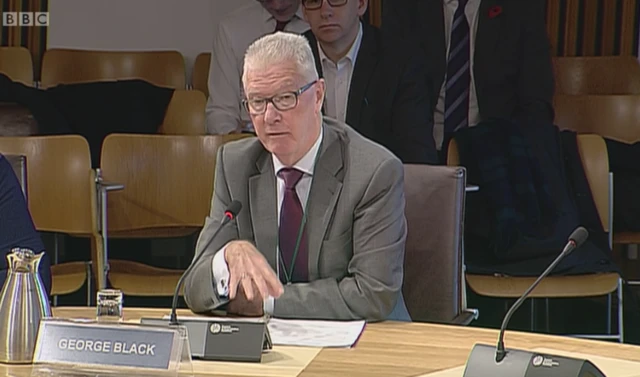
George Black, Visiting Professor from University of Strathclyde, says there needs to be more useful management of the devolved tax powers by the government.
Mr Black says the "budget needs to evolve" to give local authorities more power.
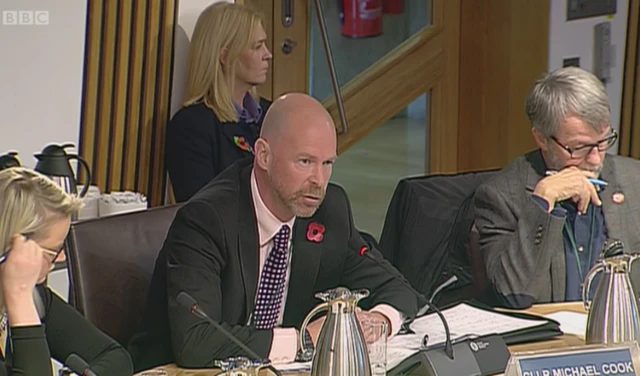
Councillor Michael Cook says there are "inordinate pressures on local authorities".
The vice president of COSLA says those on the ground in local government are far better placed to make decisions, on the allocation of money, than ministers but there is no flexibility.
"It is counterproductive," he says.
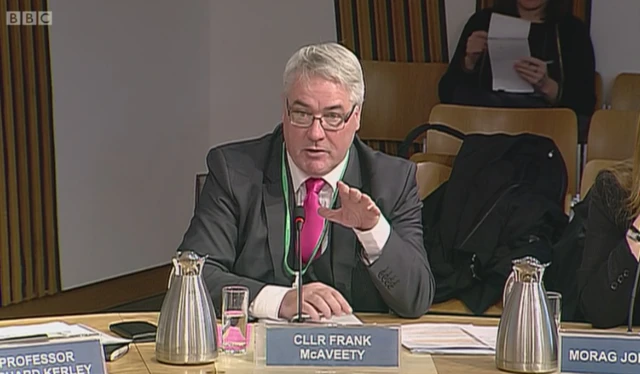
Leader of Glasgow City Council, Councillor Frank McAveety, says it would be helpful to get budget information earlier so it is clearer where money can be allocated.
Councillor Cook says the feedback from councils generally is that money has been soaked up by the cost of the living wage and other cost pressures rather than healthcare.